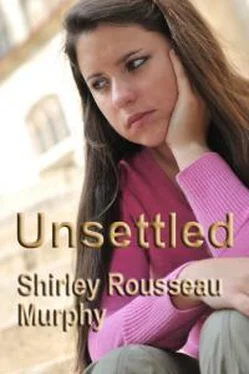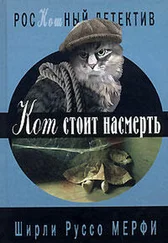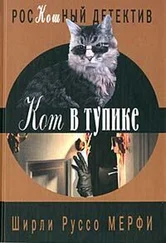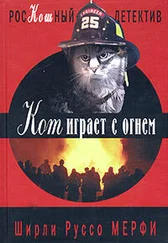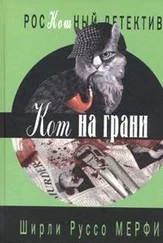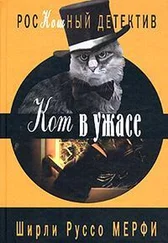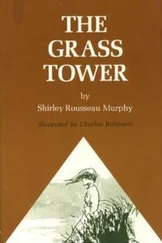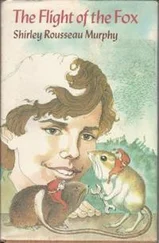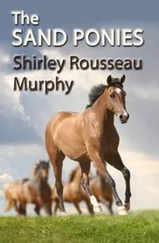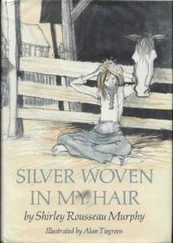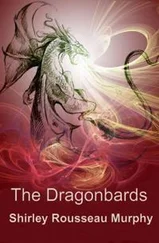FROM THE REVIEWS OF UNSETTLED
(originally titled Poor Jenny, Bright as a Penny )
“A complex, grim . . . but finally moving story. . . . When you see what giant obstacles Jenny has to scale, what strength and inner resources she must throw into the effort, life for the rest of us seems suddenly to be lived on Easy Street.” — New York Times Book Review
“Though it was designed for . . . 13, 14, and 15-year olds, it kept me from sleep and television the other night. . . . A moving story about a poor urban family whose pattern of life is set by the dyed-haired, beer-drinking mother with a penchant for packing up and moving on when things get tough. . . . It’s a good story and, I believe, a story that is true to our times.” — Atlanta Constitution
“Balanced and full of suspense, a moving novel that faces desperate situations without flinching.” — Vanguard
“Mrs. Murphy doesn’t flinch from Jenny’s grim surroundings or her mother’s hopelessly unmaternal behavior.” — Kirkus Reviews
“The writing style is excellent, the characterization and dialogue strong and convincing . . . it is realistic, it is candid if depressing . . . [and conveys] the concept that the resilient young can endure in formidable circumstances.” — Bulletin of the Center for Children’s Books
Unsettled
by
Shirley Rousseau Murphy
Smashwords Edition
Copyright © 1974 by Shirley Rousseau Murphy
All rights reserved. For information contact webmaster@joegrey.com. This ebook is licensed for your personal enjoyment only, and may not be resold, given away, or altered.
Viking Press edition (hardcover) published in 1974
under the title Poor Jenny, Bright as a Penny
Ad Stellae Books edition, 2011
Author website: www.joegrey.com
Cover photo © by Martin Novak / 123RF
Epigraph copyright © 1946 by Macmillan Publishing Co., Inc., from The Great Divorce by C. S. Lewis.
To my husband, Pat, who gave me much of the story.
AUTHOR’S NOTE
Jenny grew up in a time past, when our lives were different—you used a typewriter and had never heard of home computers, few people had credit cards, and there was no personal phone in your pocket. If your boyfriend wanted to call you without his family listening, he walked to the pay phone at the corner, over behind the gas station. To know Jenny Middle is to go back to that time, some forty years gone. Maybe some of the rules families lived by were different, the welfare rules about who could get government money, the way Jenny’s mother could rent a cheap apartment with not much cash—the times were different, but the people were much the same. Some families happy, some kids scared or miserable or both. Jenny grew up on the edge of miserable: you can change your life, or you can take the easy way. Jenny was never one to give in to the mean and easy. — Shirley Rousseau Murphy, 2011
The Blessed will say, “We have never lived anywhere except in Heaven,” and the Lost, “We were always in Hell.” And both will speak truly. — C. S. Lewis
Chapter 1
The alarm screamed. Jenny grabbed and silenced it, then lay not knowing where she was. She had been dreaming something frightening, but with the alarm it fled, leaving her confused. Her covers were off the cot and her long brown hair was tangled around her face.
Now in the dull gray light the room began to look familiar, threadbare and stained. Rain tapped sullenly at the windows. The dark furniture was jammed close together in the small space—day bed, wall bed, cots with sleeping people. She studied the mound that was Lud, sleeping next to her mother, with disgust. The air was heavy with the night breath of five people.
Her little brother slept curled up tight with his head under the blankets like a hibernating animal; the alarm never touched Bingo on school mornings.
Crystal’s perfect profile, pale against the dark shadows, showed a hint of a smile.
Jenny rose and made her bed at once. At fifteen Jenny was thin, but there was about her narrow face a watchful softness—dark eyes, dark lashes against her freckled cheeks. She woke Bingo by pulling the covers back. He snatched them from her, turned over, and was asleep again. She forced open his hands, peeled the covers off, threw them on the floor, then tickled him. When he laughed she covered his mouth so he would not wake Mama and Lud.
When Bingo was up she made the toast and coffee and set the toast on the steam radiator to keep warm. The rain was steady and depressing. She washed and brushed her teeth at the kitchen sink, leaving the bathroom to Bingo, he was so slow at it. Crystal was dressing, panty hose first, short red skirt, her naked back turned toward Lud in case he woke. She put on her bra by hooking it first around her waist, back to front, then turning it and pulling it up.
They had lived in this apartment four months. Time enough to get used to it—it was not so bad when the beds were made and the curtains open—time enough for Bingo to stop throwing up his breakfast in dread on school mornings. They had spent Christmas here with a forlorn tree dragged in from a pile of throwaways, and Mama and Lud so hung-over that they needed beer to come alive late Christmas morning. Jenny had tried to roast a stewing hen, but it was tough as a boot.
They ate their breakfast and drank their coffee huddled against the steam radiator, watching the rain surge against the windows. It was February and raining all the time. Bingo ate hunched over, drowsing. His feet dangled above the floor and his black-rimmed glasses made his nine-year-old face look too serious.
Crystal’s expression was still gentle with sleep. She smelled of Mama’s new perfume. Crystal, sixteen, looked years older than Jenny, she was filled out and sexy where Jenny was still child-shaped, with little thin bones showing through. When Bingo dug for the prize in the cereal box Crystal looked across at him tolerantly as if he were a baby. He examined the prize, a fake gold locket, then threw it down in disgust.
Crystal picked it up, smiled roguishly, and put it around her neck. On Crystal it looked good, Jenny thought. On Jenny it would have looked just ugly and fake.
The outer hall smelled of stale cigars. Bingo sat on the worn, greasy carpet to put his rubbers on. Jenny and Crystal leaned against the wall and pulled on their boots. They buttoned themselves into slickers.
On the school bus Crystal did not sit with Jenny and Bingo, but in back with the older boys, where they smoked behind the seats. Crystal had a beautiful smile. Jenny could hear her, the whole bus could, calling attention to the locket with her jokes and teasing the boys with it until one snatched it off amid a roar of laughter. Lud liked to say Crystal was stacked like a brick outhouse. When he said that, Mama would get a funny look on her face as if she was jealous and pleased at the same time. Crystal was Mama’s favorite.
Jenny and Bingo sat with their books piled between them. Jenny would not have sat with the boys even if she had been asked. She thought them a scurvy lot. Well, everyone to his own. Crystal had her own world at school. Jenny watched the rain make rivulets on the dirty windows so it smeared the neon colors of the stores. Those bright smeared reds and blues started a music in her blood. She wanted to write down how they looked.
During first period history she wrote it in her notebook—how the wet smeared colors changed that ugly town to something wonderful. Miss Natley thought Jenny was making careful lecture notes. The cool-looking boy across the aisle gave Jenny a sidelong scowl for working so hard. Jenny grinned and winked at him.
Читать дальше
